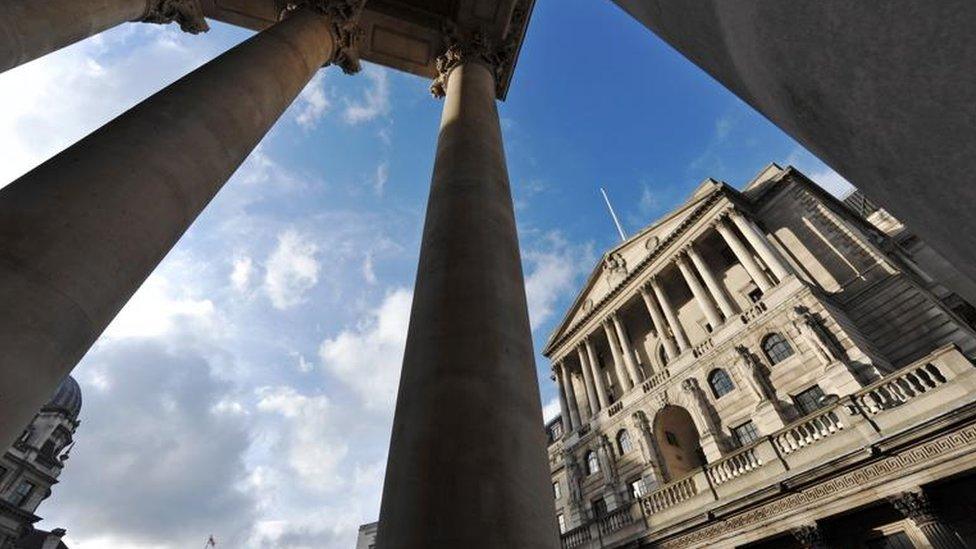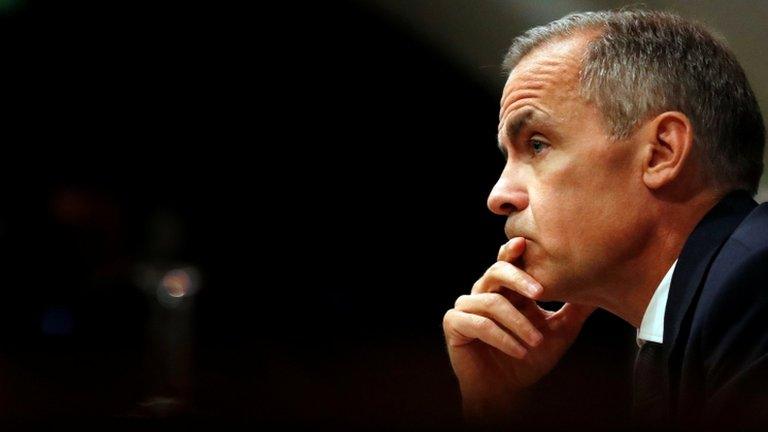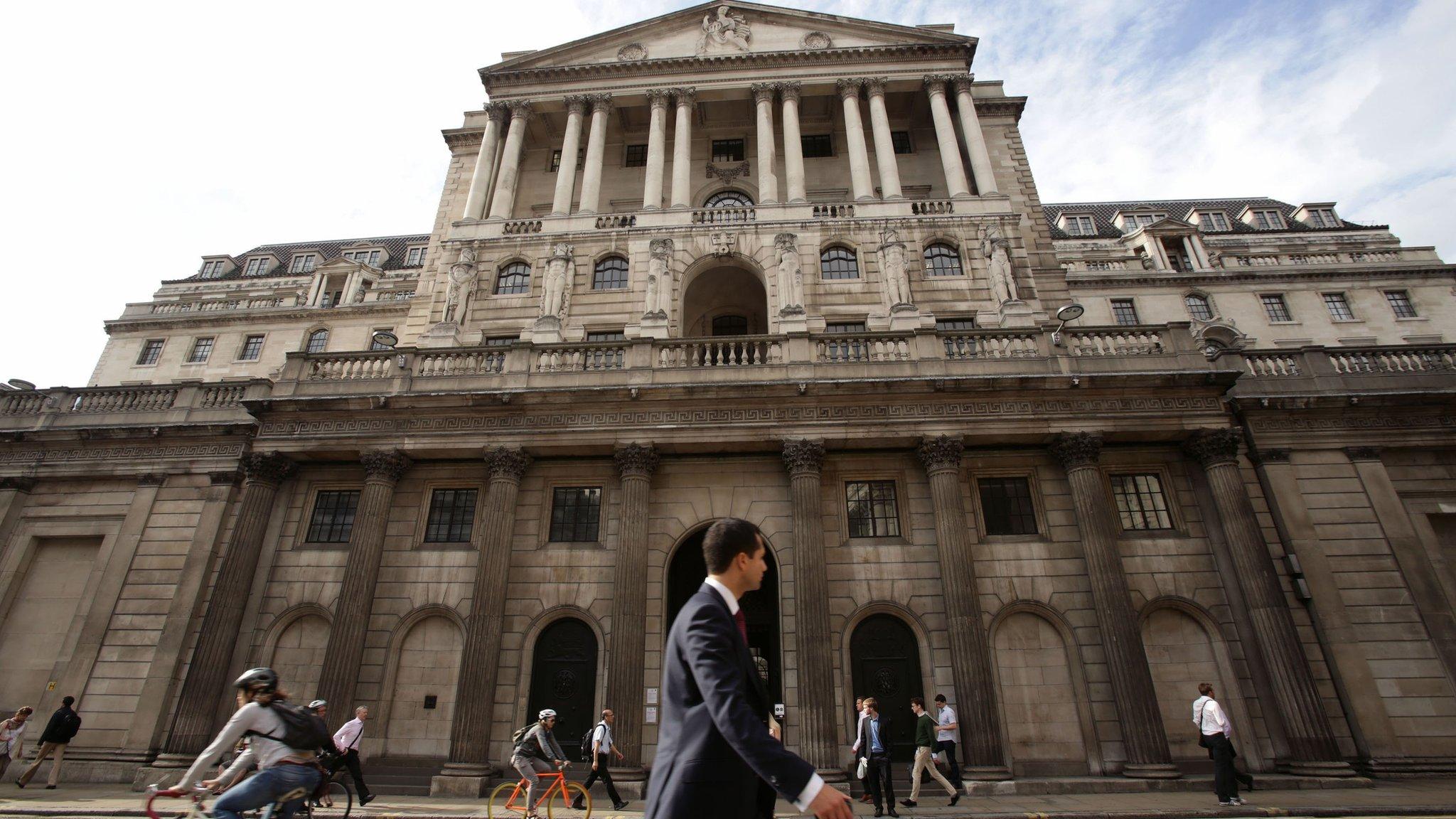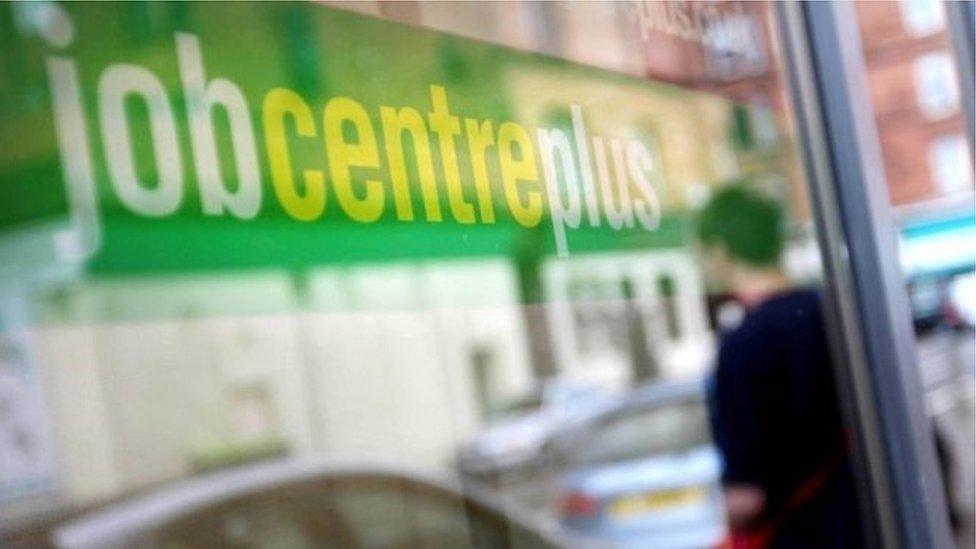Wage squeeze to get tighter
- Published
- comments

The big squeeze on incomes will get tighter from here and will last longer than previously thought.
At the moment, prices are rising 2.6% while wages are rising just 2%. That gap is expected to widen later this year.
Inflation is expected to peak at around 3% in October, as the surge in import prices caused by the post-Brexit-referendum drop in the pound continues to feed through to shop prices.
When prices rise faster than wages, we get poorer on average every day.
This explains why the Bank cut its forecast for economic growth for this year and next.
It is also the main reason why the Bank of England has decided - for the 120th month in a row - not to raise interest rates.
Economic conundrum
The Bank of England is faced with a delicate balancing act: keeping inflation under control - that means near its target of 2% - while trying not to damage the economy.
Under normal circumstances, faced with inflation above target and rising while unemployment is at its lowest level in over 40 years, the bank would already be raising interest rates.
But the consumers that power three-quarters of the economic growth are already under pressure as their incomes are eroded by inflation.
To put further pressure on them by increasing the cost of borrowing is seen as too much of a risk - for six of the eight rate setters.
Of course, one way to keep up living standards while your spending power is dwindling is to borrow money to top it up.
Consumers have been doing exactly that - piling on extra debt at a rate the Bank of England thinks is worrying.
'Spiral of complacency'
Consumer credit (personal loans, credit cards, overdrafts, etc) has risen by 10% in the last year alone - far outstripping the growth in wages or the economy.
Just last week, one of the bank's top officials accused lenders of a "spiral of complacency" in dishing out this credit.
The irony is that some of this money has come courtesy of the Bank of England, which lent the High Street banks £100bn in super-cheap money last August to combat the perceived risks to the economy of the EU referendum vote.
The Bank confirmed today they had authorisation from the chancellor to increase that pot to £115bn.
That flow of money will be shut down in February next year - as originally planned - but the increase to the pot sends mixed messages.
On the one hand, the Bank is worried that consumers are getting deeper into debt while at the same time increasing High Street banks' ability to offer irresistibly low borrowing rates.
It's a contradiction that perhaps shows just how tough this delicate this balancing act can be.
The good news is the big squeeze won't last forever.
According to the Bank, wages will begin to rise faster than inflation in the second half of next year.
The bad news for borrowers - and good for savers - is that is the moment when rates finally begin to rise.
- Published3 August 2017

- Published3 August 2017

- Published12 July 2017
